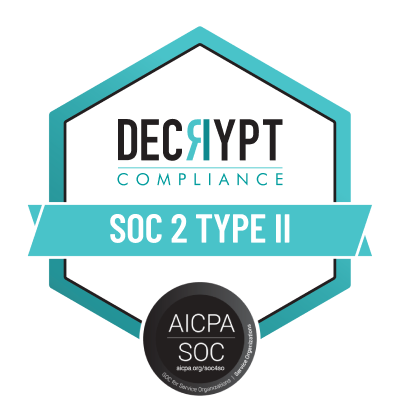Introducing Cyvers' SOC Team: Safeguarding the Web3 Ecosystem

The digital era of Web3 presents new challenges and threats that require constant vigilance and robust security measures. At Cyvers, we focus on detection engineering for Web3, including autonomous real-time monitoring of smart contracts, blockchain-based systems, and decentralized applications (dApps). Our Security Operations Center (SOC) team is at the forefront of protecting organizations and individuals from cyber threats in the Web3 landscape. In this article, we will explore the role and significance of the Cyvers Web3 SOC team.
🔒 What is a Web3 Security Operations Center (SOC)?
SOC is a centralized function within an organization that monitors, detects, investigates, and responds to cyber threats around the clock. A SOC team is responsible for safeguarding intellectual property and data assets by monitoring servers, databases, and a business's digital infrastructure. In the Web3 context, a SOC team monitors a dApp through DeFi Protocols (smart contracts) and real-time blockchain activity. This ensures the integrity of the Web3 ecosystem. Cyvers implements cutting-edge machine-learning strategies and algorithms to closely monitor, assess, detect, and defend against hacks in the Web3 space.
The Gap
In the fast-paced world of Web3, where DeFi applications and smart contracts reign, a significant gap exists in the availability and capability to respond to threats. While robust cybersecurity measures are paramount in the Web3 ecosystem, the traditional SOC model has yet to be successfully implemented due to the unique challenges posed by this decentralized and rapidly evolving landscape. As a result, organizations and individuals operating in Web3 often lack the specialized expertise and round-the-clock monitoring necessary to effectively detect, prevent, and respond to cyber threats.
Bridging this gap and establishing a dedicated SOC team tailored to the intricacies of Web3 is crucial to ensuring the security and integrity of this revolutionary technology.
🔍 What Does Our Web3 SOC Do?
The Cyvers SOC team is equipped with highly skilled professionals and advanced technologies to ensure comprehensive security coverage in the Web3 environment. Here's a glimpse into their key roles and responsibilities:
1 Prevention and Detection:
Our SOC team prioritizes proactive monitoring to prevent cyber threats. By continuously monitoring blockchain networks, tokens, smart contracts, and wallets, we can detect, alert, and prevent malicious activities before they cause any damage. When something suspicious is detected, our SecOps analysts conduct in-depth investigations to gather relevant information for further analysis and action.
2️ Investigation:
During the investigation stage, the SecOps analysts analyze suspicious activities to determine the nature and extent of the threats. They adopt an attacker's perspective, identifying key indicators and areas of exposure to prevent potential exploits. Leveraging global threat intelligence, we perform effective investigations, combining knowledge about the organization's network with real-time insights on attacker tools, techniques, and trends.
3️ Response:
After a thorough investigation, the SOC team coordinates a swift and effective response to remediate the identified threats. Acting as first responders, we isolate endpoints, terminate harmful processes, and take advice about immediate actions to prevent further damage. In the event of an incident, we work diligently to restore systems and recover any compromised data, ensuring a swift return to normal operations.
🔐 Challenges Faced by Our Web3 SOC Team
The Web3 world faces several challenges and operates in a rapidly evolving cybersecurity landscape. Here are the challenges any given Web3 application faces that the SOC team solves.
1️ Lack of Real-Time Alerting:
Many Web3 DApps struggle with the absence of real-time alerting mechanisms, making it challenging to identify and respond to security threats promptly. Without a reliable system to provide instant notifications, crypto entities or DApps risk delayed detection of malicious activities, leaving them vulnerable to potential exploits and breaches.
2️ Limited Malicious Activity Detection:
DApps often face difficulties detecting and analyzing malicious activity within their ecosystems. The absence of comprehensive monitoring tools and analytics capabilities hinders their ability to identify abnormal behavior and potential security breaches. This lack of visibility can lead to prolonged exposure to threats, putting user data, assets, and loss of funds.
3️ Insufficient Incident Response Strategy:
DApps frequently lack a well-defined incident response strategy tailored to the unique challenges of the Web3 environment. Blockchain-based platforms may struggle to mitigate and recover from security incidents effectively without a clear plan, including predefined roles, procedures, and escalation paths. This can result in prolonged downtime, reputational damage, and financial losses, impacting the overall success and user trust in the DApp.
The lack of standardization in analysis, terminology, and response strategy among SOC teams within Web3 Security poses significant challenges. This gap in "common knowledge" when analyzing and investigating incidents and attacks has been recognized by the Cyvers team, leading to the initiation of OSWAR (Open Standard Web3 Attack Reference). OSWAR is a groundbreaking framework designed for the entire Web3 sector, bringing together experts from diverse fields to collaboratively improve these areas. By empowering analysts with OSWAR, they gain the ability to identify attack vectors effectively and determine the most appropriate mitigation approaches. This initiative marks a significant step towards enhancing the security posture of the Web3 ecosystem.
💪 Enhancing Web3 Security with Cyvers' SOC Team
At Cyvers, we understand the critical importance of closing this gap and empowering Web3 solutions with SOC capabilities. Our dedicated SOC team specializes in providing tailored security solutions to the Web3 ecosystem. By leveraging advanced technologies, proactive monitoring, and rapid incident response, we enable Crypto companies and DApps to fortify their defenses, detect emerging threats, and swiftly resolve security issues. With Cyvers by their side, DApps can confidently operate, knowing that their security is in capable hands.
Next generation threat prevention
Identify patterns and anomalies across blockchains in real-time for proactive mitigation.




.webp)
.webp)
.webp)

.webp)
.webp)